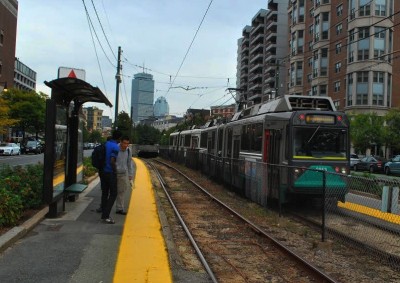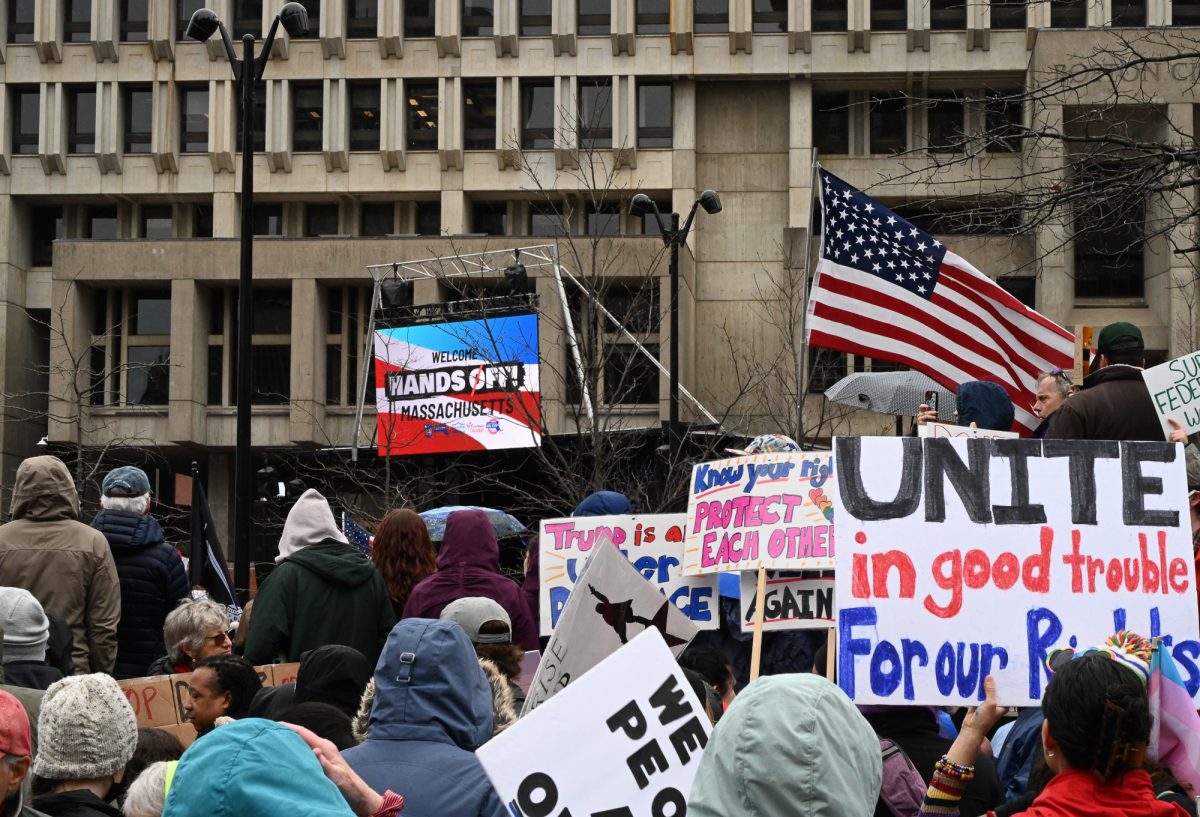
In the month of October, the number of Massachusetts Bay Transportation Authority trips reached a record-breaking 37 million, despite a 5 percent fare increase that was implemented in July.
Precisely 37.280 million trips were taken on subways, buses, commuter trains and ferry boats in October 2014, a 1.5 percent increase from the previous record set in October 2013, according to Massachusetts Department of Transportation spokeswoman Kelly Smith. The ridership data of Monthly Unlinked Passenger Trips was released Friday.
An average of 1.377 million trips were made daily in October, and MBTA ridership is experiencing a growth rate of 1.2 percent compared to the last fiscal year, Smith said in an email.
Joe Pesaturo, spokesman for the MBTA, said it was initially projected that the MBTA would experience a slight decrease in ridership after fares increased, but the ridership numbers in October showed the contrary. He attributed the hike in ridership to increased customer satisfaction with the T and smartphone applications.
“We have focused a lot on making improvements to the service,” Pesaturo said. “Whether it’s improving reliability service or improving customer service such as the real time data that’s now available. We strongly believe, now that people can download these apps on their smartphones to tell them the exact time the trains and buses will arrive, it makes using the T easier than ever. So we really believe that that has a lot to do with it.”
The fare increase was needed to cover a deficit in the operating budget, Pesaturo said.
“In the past, there were a rise between 20 percent to 25 percent, and this time was a more modest 5 percent,” he said. “We have purchased new subway trains for the Orange and Red Line to grow our ridership and get more commuters utilizing the T. We will also be extending the green line to Somerville and Medford by 2017.”
Pesaturo said because these new trains run on electricity and result in zero emissions, they will be environmentally beneficial.
Richard Sullivan, lieutenant detective of the MBTA Transit Police, said the increase in ridership has not resulted in a rise in crime, with MBTA Transit Police reporting 694 crimes over the past year.
“The MBTA Transit Police take great pride in maintaining a safe transportation system for all to enjoy and benefit from,” Sullivan said in an email. “The increase in ridership does not lend itself as a cause of concern to us. To the contrary, we are grateful that more people are choosing to ride the MBTA.”
Sullivan said the biggest concerns that the MBTA police look out for are fare evasion, smoking and loitering.
Several residents said they could see different reasons behind October’s increased ridership.
Ronald Smith, 35, of South Boston, said the record-breaking number of riders is due to the seasonal events that take place in October.
“October is the most beautiful month to see fall foliage as well as main events like the Head of the Charles,” he said.
Allen Mandel, 62, of Jamaica Plain, said July’s fare increase will affect the diversity of the commuters, and he expects the increase to eventually decrease ridership in certain demographics.
“The increased ride cost will segregate groups of people that ride the T and ride other less expensive modes of public transportation,” he said. “Some people will be forced to ride cheaper modes of transportation.”
Samantha Louis, 26, of South Boston, said the price increase will positively affect the safety of the T.
“The price difference is intense enough to make an impact on who can afford to ride the T,” he said. “This will inevitably reduce crime rates, as it costs more to get on the T in the first place.”





















































































































